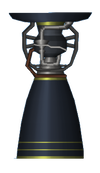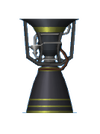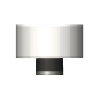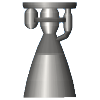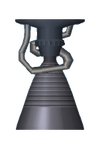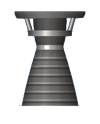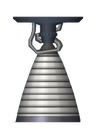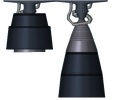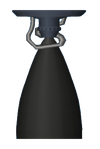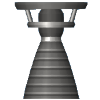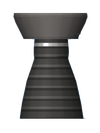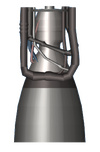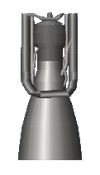Shazbotdom Imperial Space Administration: Difference between revisions
ShazBackup (talk | contribs) |
|||
| Line 468: | Line 468: | ||
{| class="wikitable" | {| class="wikitable" | ||
|- | |- | ||
! !! <small>Bird of Prey-class v1</small> !! <small>Bird of Prey-class v2</small> !! <small>Wizzard-class</small> !! <small>Voltrai-class<br>Ion Engine | ! !! <small>Bird of Prey-class v1</small> !! <small>Bird of Prey-class v2</small> !! <small>Wizzard-class</small> !! <small>Voltrai-class<br>Ion Engine</small> | ||
|- | |- | ||
! Photo | ! Photo | ||
|| <center>[[File:BirdOfPreyV1-class Engine.png]]</center> || <center>[[File:BirdOfPreyV2-Engine.png]]</center> || <center>[[File:Wizzard-class Engine.png]]</center> || <center>[[File:Voltrai-class | || <center>[[File:BirdOfPreyV1-class Engine.png]]</center> || <center>[[File:BirdOfPreyV2-Engine.png]]</center> || <center>[[File:Wizzard-class Engine.png]]</center> || <center>[[File:Voltrai-class.png]]</center> | ||
|- | |- | ||
! Weight | ! Weight | ||
|| 7 Tons || 10 Tons || 3 Tons || 0.5 | || 7 Tons || 10 Tons || 3 Tons || 0.5 Tons | ||
|- | |- | ||
! Thrust | ! Thrust | ||
|| 230 Tons || 80 Tons || 47 Tons || 16 Tons || 1.9 Tons || 185 Tons || 160 Tons | || 230 Tons || 80 Tons || 47 Tons || 16 Tons | ||
|- | |||
| colspan=4 style="text-align: center;" | | |||
|- | |||
! !! <small>Kelabri-class</small> !! <small>Triangulum-class<br>Aerospike v1.0</small> !! <small>Triangulum-class<br>Aerospike v1.5</small> | |||
|- | |||
! Photo | |||
|| <center>[[File:Kelabri-class.png]]</center> || <center>[[File:TriangulumAerospike-class Engine.png]]</center> || <center>[[File:TriangulumAerospike-class Engine.png]]</center> | |||
|- | |||
! Weight | |||
|| 0.5 Tons || 5 Tons || 3 Tons | |||
|- | |||
! Thrust | |||
|| 1.9 Tons || 185 Tons || 160 Tons | |||
|}</center> | |}</center> | ||
| Line 484: | Line 497: | ||
{| class="wikitable" | {| class="wikitable" | ||
|- | |- | ||
! !! <small>Grego-class</small> !! <small>Bald Eagle-class</small> !! <small>Broadsword-class</small> !! <small>Eagle Tres-class</small> !! <small>Eagle-class v1<br>Expandable Engine</small> !! <small>Eagle-class v2</small> !! <small>OWL-class</small> !! <small>Hendra-class</small> | ! !! <small>Grego-class</small> !! <small>Bald Eagle-class</small> !! <small>Broadsword-class</small> !! <small>Eagle Tres-class</small> | ||
|- | |||
! Photo | |||
|| <center>[[File:Grego-class.png]]</center> || <center>[[File:BaldEagle-class Engine.png]]</center> || <center>[[File:Broadsword-class Engine.png]]</center> || <center>[[File:EagleTres-class Engine.png]]</center> | |||
|- | |||
! Weight | |||
|| 6 Tons || 1 Ton || 2 Tons || 1.15 Tons | |||
|- | |||
! Thrust | |||
|| 115 Tons || 10 Tons || 45 Tons || 11 Tons | |||
|- | |||
| colspan=5 style="text-align: center;" | | |||
|- | |||
! !! <small>Eagle-class v1<br>Expandable Engine</small> !! <small>Eagle-class v2</small> !! <small>OWL-class</small> !! <small>Hendra-class</small> | |||
|- | |||
! Photo | |||
|| <center>[[File:EagleV1-class Expandable Engine.png]]</center> || <center>[[File:Eaglev2-class Engine.png]]</center> || <center>[[File:OWL-Class Engine.png]]</center> || <center>[[File:Hendra-class.png]]</center> | |||
|- | |||
! Weight | |||
|| 1.5 Tons || 1.1 Tons || 0.5 Tons || 2 Ton | |||
|- | |||
! Thrust | |||
|| 11.25 Tons || 10.9 Tons || 2.6 Tons || 45 Ton | |||
|- | |||
| colspan=5 style="text-align: center;" | | |||
|- | |||
! !! <small>Phoenix-class</small> !! <small>Raptor-class v1</small> !! <small>Raptor-class v2</small> !! <small>T1-class</small> | |||
|- | |- | ||
! Photo | ! Photo | ||
|| <center>[[File: | || <center>[[File:Phoenix-class Engine.png]]</center> || <center>[[File:RaptorV1ClassEngine.png]]</center> || <center>[[File:RaptorV2ClassEngine.png]]</center> || <center>[[File:T1-class Engine.png]]</center> | ||
|- | |- | ||
! Weight | ! Weight | ||
|| | || 3.5 Tons || 12 Tons || 6 Tons || 0.5 Tons | ||
|- | |- | ||
! Thrust | ! Thrust | ||
|| | || 140 Tons || 450 Tons || 120 Tons || 99 Tons | ||
|- | |- | ||
| colspan= | | colspan=5 style="text-align: center;" | | ||
|- | |- | ||
! | ! !! <small>Phoenix-class</small> !! <small>Raptor-class v1</small> !! <small>Raptor-class v2</small> !! <small>T1-class</small> | ||
|- | |- | ||
! Photo | ! Photo | ||
|| <center>[[File:Phoenix-class Engine.png]]</center> || <center>[[File:RaptorV1ClassEngine.png]]</center> || <center>[[File:RaptorV2ClassEngine.png]]</center> || <center>[[File:T1-class Engine.png]]</center> | |||
|- | |- | ||
! Weight | ! Weight | ||
|| 3.5 Tons || 8 Tons || 12 Tons || 15 Tons | |||
|- | |- | ||
! Thrust | ! Thrust | ||
|| 124 Tons || 250 Tons || 450 Tons || 400 Tons | |||
|} | |} | ||
</center> | </center> | ||
Revision as of 22:41, 5 June 2024
The Shazbotdom Imperial Space Administration, the only space launch organization within the Shazbotdom Empire, is responsible for launch functions for the entire Shazbotdom Space Environment. It has been more than forty years since the Administration was founded, and it has been an exemplary setter of public space travel ever since it was established more than forty (40) years ago. The administration has just entered a new golden age of space travel, and it is working feverishly to ensure that the Empire remains at the forefront of space exploration in this new golden age of space exploration. The administration is working feverishly to make sure that the Empire remains at the forefront of space exploration in this new golden age.
 | |
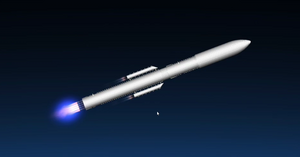 Launch of Mission 1st Lunar Farm Build 25 | |
| Abbreviation | ISA |
|---|---|
| Formation | 17 August, 1978 |
| Headquarters | Joliet, Shazbotdom |
Official language | English, Shazonite |
Administrator | Dr. Gilbert Godwin |
| George A. Loak Memorial Space Center | |
Parent organisation | Ministry of the Interior, The Shazbotdom Empire |
Budget | B$575 Billion |
History
- The Imperial Space Administration (ISA) was founded in 1978 to use telescopes to observe the cosmos. It expanded to 8 different telescope arrays and the first director was appointed by the Original Emperor, Shaz Bot, on the 29th of August, 1978. The ISA played a pivotal role in the exploration of space during the 1980s, leading to numerous groundbreaking initiatives. The 4534-class Rocket System was a key feature of the ISA's commitment to pushing the limits of space travel. It was designed to transport both crewed and unmanned missions into Earth orbit, with a primary focus on exploration of Luna and Earth. The most notable mission was the launch of Imperial Lab 1 in 1981, which was the first orbital laboratory for the Shazbotdom Empire. The Lab 1 facilitated groundbreaking research that contributed to advancements in space technology and expanded our understanding of the universe. However, despite its remarkable contributions, the Lab 1 was unexpectedly decommissioned in 1985 after only 4 years into its 8 year mission.
Launches
Year End Totals
| 2022 | 2023 | |
|---|---|---|
| Orbital | 56 | 156 |
| SubOrbital | 14 | 24 |
| DeOrbits | 2 | 12 |
| TOTAL | 72 | 192 |
SubOrbital
Past SubOrbital Launches
| Mission | Date | Completion | Description | Booster | NOTES: |
|---|---|---|---|---|---|
| SRL-01 | 21 Apr, 2024 | 17:30 | 1st Sounding Rocket Launch with Scientific Experiment | SR-01 | Mission Successful |
| SRL-02 | 18 May, 2024 | 19:30 | 2nd Sounding Rocket Launch with Scientific Experiment | SR-02 | Mission Successful |
Next SubOrbital Launch
SRL-03
- The purpose of Sound Rocket Launch 03 is a SubOrbital Flight of a Sounding Rocket with an Unknown MicroGravity Experiment. This Mission will take off from SubOrbital Pad J-03 at the SubOrbital Rocket Launch Facility.
Booster
- This flight will utilize Booster SR-03 in its Only Mission.
Launch Window
- The Launch Window will be on the 15th of June, 2024 between 07:00 and 19:30.
Upcoming SubOrbital Launches
| Mission | Test Launch Complex |
Launch Window | Description | Booster |
|---|---|---|---|---|
| SRL-04 | J-02 | 16 Jul, 2024 | Launch of Sounding Rocket | SR-04 |
| SRL-05 | J-04 | 19 Aug, 2024 | Launch of Sounding Rocket | SR-05 |
| SRL-06 | J-01 | 12 Sept, 2024 | Launch of Sounding Rocket | SR-06 |
| SRL-07^ | J-05 | 9 Oct, 2024 | Launch of Sounding Rocket | SR-07 |
| SRL-08^ | J-03 | 19 Nov, 2024 | Launch of Sounding Rocket | SR-08 |
| SRL-09^ | J-04 | 21 Dec, 2024 | Launch of Sounding Rocket | SR-09 |
| SRL-10^ | J-02 | 29 Jan, 2025 | Launch of Sounding Rocket | SR-10 |
Orbital Launches
Past Orbital Launches
| Mission | Date | Completion | Description | 1S | 2S | 3S | NOTES: |
|---|---|---|---|---|---|---|---|
| COL-02 | 2 June, 2024 | 14:35 | Mission to Launch 2nd Colonization Mission (Destination: Lunar Farm 1) | Z-9 | K-4 | ||
| MBTB-02 | 2 June, 2024 | 17:35 | Mission to Launch 2nd Core Segment for Mars Colony Transfer Vessel | Z-14 | O-7 | ||
| MBTB-03 | 4 June, 2024 | 15:10 | Mission to Launch 3rd Core Segment for Mars Colony Transfer Vessel | Z-15 | O-8 |
Next Orbital Launch
MBTB-04
- The purpose of Mission Mars Base Transfer Build 4 is to launch the 4th Core Segment for the Mars Colony Transfer Vessel. This mission will take off from Launch Complex #21 at Marine Air Corps Base Delta 3.
1st Stage Booster
- This flight will utilize First Stage Booster Zeta-1 in its 19th Mission.
2nd Stage Booster
- This flight will utilize Second Stage Booster Omicron-9 in its 11th Mission.
3rd Stage Booster
- This flight will not utilize a Third Stage Booster.
Primary Window
- The Primary Window is on the 7th of June, 2024 between 08:00 and 21:00.
Secondary Window
- If there is a complication with the Primary Window and it is scrubbed, the Secondary Window will be on the 8th of June, 2024 between 08:00 and 16:00.
MBTB-05
- The purpose of Mission Mars Base Transfer Build 5 is to launch the 1st set of Side Attachment Segments for the Mars Colony Transfer Vessel. This mission will take off from Launch Complex #41 at the Anders L. Cooperston Memorial Space Center in the Imperial Colony of Alraibris.
1st Stage Booster
- This flight will utilize First Stage Booster Delta-6 in its 6th Mission.
2nd Stage Booster
- This flight will utilize Second Stage Booster Gamma-5 in its 6th Mission.
3rd Stage Booster
- This flight will not utilize a Third Stage Booster.
Primary Window
- The Primary Window is on the 9th of June, 2024 between 08:00 and 21:00.
Secondary Window
- If there is a complication with the Primary Window and it is scrubbed, the Secondary Window will be on the 10th of June, 2024 between 08:00 and 16:00.
MBTB-06
- The purpose of Mission Mars Base Transfer Build 6 is to launch the 2nd set of Side Attachment Segments for the Mars Colony Transfer Vessel. This mission will take off from Launch Complex #42 at the Anders L. Cooperston Memorial Space Center in the Imperial Colony of Alraibris.
1st Stage Booster
- This flight will utilize First Stage Booster Delta-7 in its 6th Mission.
2nd Stage Booster
- This flight will utilize Second Stage Booster Gamma-6 in its 5th Mission.
3rd Stage Booster
- This flight will not utilize a Third Stage Booster.
Primary Window
- The Primary Window is on the 12th of June, 2024 between 08:00 and 21:00.
Secondary Window
- If there is a complication with the Primary Window and it is scrubbed, the Secondary Window will be on the 13th of June, 2024 between 08:00 and 16:00.
Upcoming Orbital Launches
June 2024
| Mission | LC | Primary Window |
Secondary Window |
Description | 1S | 2S | 3S |
|---|---|---|---|---|---|---|---|
| 1MCB-01 | #2 | 14 June, 2024 | 15 June, 2024 | Mission to Launch 1st Solar Panel Array (w/ Atmospheric ReEntry Cover) to Mars Colony Transfer Vessel |
Z-2 | O-5 | |
| COL-02 DeOrbit |
17 June, 2024 | DeOrbit and Landing of 2nd Colonization Mission | K-4 | ||||
| PFF-78 | #3 | 17 June, 2024 | 18 June, 2024 | 78th PATHOS Foundation Flight | Z-3 | T-3 | |
| PFF-79 | #4 | 19 June, 2024 | 20 June, 2024 | 79th PATHOS Foundation Flight | Z-4 | T-4 | |
| CRW-09 DeOrbit |
20 June, 2024 | Mission to DeOrbit the 9th Scientific Crewed Mission from the Orbital Science Space Station |
E-1 | ||||
| PFF-80 | #5 | 22 June, 2024 | 23 June, 2024 | 80th PATHOS Foundation Flight | Z-5 | T-6 | |
| AGL1-02 | #43 | 25 June, 2024 | 26 June, 2024 | 2nd Mission of Contract for The Arkloydis Group from Lysiennia | D-8 | G-7 | |
| AGL1-03 | #41 | 27 June, 2024 | 28 June, 2024 | 3rd Mission of Contract for The Arkloydis Group from Lysiennia | D-9 | G-8 | |
| AGL1-04 | #42 | 29 June, 2024 | 30 June, 2024 | 4th Mission of Contract for The Arkloydis Group from Lysiennia | D-10 | G-9 |
July 2024
| Mission | LC | Primary Window |
Secondary Window |
Description | 1S | 2S | 3S |
|---|---|---|---|---|---|---|---|
| PFF-81 | #9 | 2 July, 2024 | 3 July, 2024 | 81st PATHOS Foundation Flight | Z-6 | T-7 | |
| MTB-01 DeOrbit |
4 July, 2024 | DeOrbit of 2nd Stage Booster from Mission Mars Orbital Transfer Station Build 1 (MTB-01) |
T-8 | ||||
| TRA-07 | #10 | 6 July, 2024 | 7 July, 2024 | Mission to Launch Lander Chi-3 into Earth Orbit to Mars Orbital Transfer Station |
Z-7 | O-4 | C-3 |
| TRA-08 | #1 | 9 July, 2024 | 10 July, 2024 | Mission to Launch Lander Chi-4 into Earth Orbit to Mars Orbital Transfer Station |
Z-8 | O-10 | C-4 |
| CSF-19 | #42 | 11 July, 2024 | 12 July, 2024 | Launch of 20 v3 Mini Satellites into Earth Orbit for CosmoCast Shazbotdom |
U-1 | P-1 | |
| CSF-20 | #43 | 13 July, 2024 | 14 July, 2024 | Launch of 20 v3 Mini Satellites into Earth Orbit for CosmoCast Shazbotdom |
U-2 | P-2 | |
| 1MCB-02 | #4 | 16 July, 2024 | 17 July, 2024 | Mission to Launch 2nd Solar Panel Array (w/ Atmospheric ReEntry Cover) to Mars Colony Transfer Vessel |
Z-9 | O-1 | |
| 1MCB-03 | #21 | 18 July, 2024 | 19 July, 2024 | Mission to Launch 3rd Solar Panel Array (w/ Atmospheric ReEntry Cover) to Mars Colony Transfer Vessel |
Z-10 | O-2 | |
| CRW-10 DeOrbit |
20 July, 2024 | Mission to DeOrbit the 10th Scientific Crewed Mission from the Orbital Science Space Station |
E-2 | ||||
| MTB-08 | #22 | 21 July, 2024 | 22 July, 2024 | Launch and Docking of 1st Temporary Engine Segment onto Mars Orbital Transfer Station |
Z-11 | O-3 | |
| ISR-06 DeOrbit |
23 Jul, 2024 | DeOrbit of 6th Space Station Supply Mission | O-1 | ||||
| MTB-09 | #5 | 24 July, 2024 | 25 July, 2024 | Launch and Docking of Cross Brace for in between Engines onto Mars Orbital Transfer Station |
Z-12 | O-4 | |
| NTC1-01 | #6 | 27 July, 2024 | 28 July, 2024 | 1st Launch in 1st Contract for Nauanganni Tuuni Aerospace and Underwater Association |
Z-13 | T-9 | |
| MTB-10 | #7 | 28 July, 2024 | 29 July, 2024 | Launch and Docking of 2nd Temporary Engine Segment onto Mars Orbital Transfer Station |
Z-14 | O-5 | |
| MTB-11 | 31 July, 2024 | Mission to Begin sending the Mars Orbital Transfer Station on its Journey out of Earth's Orbit and towards Martian Orbit. |
August 2024
| Mission | LC | Primary Window |
Secondary Window |
Description | 1S | 2S | 3S |
|---|---|---|---|---|---|---|---|
| WSL-01 | #8 | 3 August, 2024 | 4 August, 2024 | Mission to Launch 12 Ground Weather Stations to Mars | Z-15 | T-8 | |
| 1MCB-04 | #9 | 5 August, 2024 | 6 August, 2024 | Mission to Launch 4th Solar Panel Array (w/ Atmospheric ReEntry Cover) to Mars Colony Transfer Vessel |
Z-1 | O-6 | |
| NTC1-02 | #10 | 7 August, 2024 | 8 August, 2024 | 2nd Launch in 1st Contract for Nauanganni Tuuni Aerospace and Underwater Association |
Z-2 | T-10 | |
| CSF-21 | #44 | 9 August, 2024 | 10 August, 2024 | Launch of 12 v3 Mini Satellites into Earth Orbit for CosmoCast Shazbotdom |
U-3 | P-3 | |
| 1MCB-05 | TBD | 11 August, 2024 | 12 August, 2024 | Mission to Launch 1st Battery Array (w/ Atmospheric ReEntry Cover) to Mars Colony Transfer Vessel |
Z-3 | O-8 | |
| 1MCB-06 | TBD | 14 August, 2024 | 15 August, 2024 | Mission to Launch 2nd Battery Array (w/ Atmospheric ReEntry Cover) to Mars Colony Transfer Vessel |
Z-4 | O-9 | |
| SBB-15 | #41 | 17 August, 2024 | 18 August, 2024 | Mission to Launch New Housing Unit w/ Internet Connectivity Hubs to Orbital Science Space Station |
U-4 | P-4 | |
| NCS2-01^ | TBD | 21 August, 2024 | 22 August, 2024 | 1st Launch in 2nd Contract for New Chinese Space Program | TBD | TBD | |
| NCS2-02^ | TBD | 24 August, 2024 | 25 August, 2024 | 2nd Launch in 2nd Contract for New Chinese Space Program | TBD | TBD | |
| NCS2-03^ | TBD | 26 August, 2024 | 27 August, 2024 | 3rd Launch in 2nd Contract for New Chinese Space Program | TBD | TBD | |
| CRW-14^ | #42 | 29 August, 2024 | 30 August, 2024 | Launch of 14th Crewed Mission to Orbital Science Space Station |
D-3 | G-2 | E-6 |
New Chinese Space Program 1
- These Missions require Medium Lift. There are 30 Total Launches. 0 Completed and 0 Scheduled Launches.
New Chinese Space Program 2
- These Missions require Heavy Lift. There are 50 Total Launches. 0 Complete and 3 Scheduled Launches.
Commercial Partners
Shazonian Aerodynamics
- Shazonian Aerodynamics is a renowned company specializing in building rocket engines for the Shazbotdom Imperial Space Agency. With their cutting-edge technology and expertise, they have played a crucial role in propelling the Shazbotdom's space exploration missions to new heights.
- The significance of Shazonian Aerodynamics can be seen in their contribution to the economy of Shazbotdom. Being the 6th largest employer in the country, they provide valuable job opportunities to a significant number of individuals. Their workforce consists of highly skilled engineers, technicians, and support staff who work tirelessly to ensure the success of their projects.
- The success of Shazonian Aerodynamics can be attributed to their relentless pursuit of innovation and excellence. Their research and development department constantly pushes the boundaries of aerodynamics, striving to create more efficient and powerful rocket engines. By staying at the forefront of technological advancements, they have cemented their position as a leader in the industry.
- As the primary company responsible for the maintenance of ShazAir, Shazonian Aerodynamics has established itself as a trusted partner in the aerospace industry. Their dedication to quality and safety has made them an integral part of ShazAir's operations, ensuring that the fleet remains in optimal condition.
- In addition to their work with the Shazbotdom Imperial Space Agency and ShazAir, Shazonian Aerodynamics also collaborates with other international space agencies and aerospace companies. This collaboration not only enhances their expertise but also fosters the exchange of knowledge and ideas, pushing the boundaries of what is possible in the field of aerodynamics.
- When it comes to safety, Shazonian Aerodynamics leaves no room for compromise. They adhere to strict safety standards and regulations, ensuring that their rocket engines and maintenance practices meet the highest level of reliability. This commitment to safety has earned them a reputation for delivering products and services that are dependable and trustworthy.
Rocket Engine Models
Active Use
Not In Use
Grants Metal Supply
- Grants Metal Supply is a vital partner corporation for the Shazbotdom Imperial Space Administration (SISA). With their exceptional expertise in metal supply, Grants Metal Supply plays a crucial role in the success of SISA's rocket missions. As the sole supplier of metals required for all rockets, Grants Metal Supply ensures the highest quality materials are used in the construction of SISA's space vehicles.
- The collaboration between Grants Metal Supply and SISA dates back to the inception of the space agency. Recognizing the importance of reliable and durable materials in rocket manufacturing, SISA sought out Grants Metal Supply as their trusted partner. Grants Metal Supply's impeccable reputation for delivering top-notch products made them an obvious choice.
- One of the primary reasons SISA chose Grants Metal Supply is their extensive range of metal offerings. Grants Metal Supply provides a wide variety of metals, including aluminum, titanium, steel, and alloys specifically designed for space applications. This comprehensive selection allows SISA to select the most suitable materials for each component of their rockets, ensuring optimal performance and safety.
- Furthermore, Grants Metal Supply is an organization that excels at meeting tight deadlines in addition to offering a diverse range of metals. Due to the fact that space missions often have a tight delivery schedule, it is essential for SISA to have a partner who can deliver materials on time. Grants Metal Supply's efficient supply chain management ensures that SISA receives the required metals in a timely manner, minimizing any potential delays in the rocket manufacturing process.
- There is no doubt that quality control plays an important part in the aerospace industry, and Grants Metal Supply is well aware of this. They have implemented stringent quality assurance protocols to ensure that the metals they supply meet the highest industry standards. Through rigorous testing and inspection procedures, Grants Metal Supply guarantees that the materials are free from defects and possess the necessary properties for space travel.
- Additionally, Grants Metal Supply recognizes the importance of environmental responsibility and sustainability. As part of the company's commitment to minimizing the impact on the environment, they actively promote the use of recycled metals. By incorporating recycled materials into their offerings, Grants Metal Supply contributes to SISA's commitment to sustainable space exploration.
- Grants Metal Supply and SISA have formed a strategic partnership that extends far beyond the provision of metals. SISA's engineering teams also receive technical assistance and guidance from Grants Metal Supply as part of their technical support. As a result of their knowledge and experience in the field of material selection, the engineering teams at SISA are able to provide valuable insights on how to improve the design and performance of the rockets they build.
Space Launch Facilities
- As of the current time, the Shazbotdom Imperial Space Administration has a total of 3 Orbital Launch Facilities (George A. Loak Memorial Space Center, Marine Air Corps Base Delta 3, and Anders L. Cooperston Memorial Space Center) and 1 SubOrbital Test Launch Facility.
Equipment
Space Stations
- The Imperial Space Agency utilizes a variety of Orbital Stations for its operations. This includes the Orbital Science Space Station, which is set to have a lifespan of 60 years due to it's ability to be updated and have modules replaced with newer equipment, the upcoming High Orbit Transfer Station, which will be utilized in the transfer of people and equipment for the self-sustaining colonies that will be setup on Mars and Venus, and the upcomming Lunar Transfer Station, which will be utilized for the transfer of people and equipment for the self-sustaining colony on Luna.
Launch Platforms
- The Imperial Space Agency utilizes a variety of Launch Platforms for its operations. This includes the Low to Mid Orbit Launch System and the Heavy Launch System. These platforms are to be utilized for launching of Satellites into orbit, the Construction and maintenance of the Space Stations, and the construction of the Lunar and Mars Colonial equipment.
Space Suits
- The Shazbotdom Imperial Space Administration utilizes a total of Three (3) Space Suits for varried uses. Two of these (the Class-1 and Class-2) are currently in use while the Class-3 is awaiting it's first use for when the Colonial Posessions on Mars and Venus are established.
Solar System Colonial Posessions
- The Shazbotdom Empire and Imperial Space Agency are planning on beginning the perminant colonization of the Lunar, Venus and Martian Surfaces.

